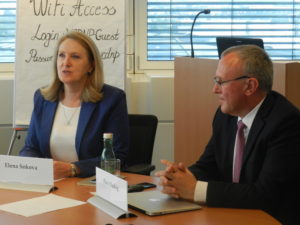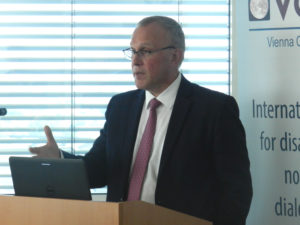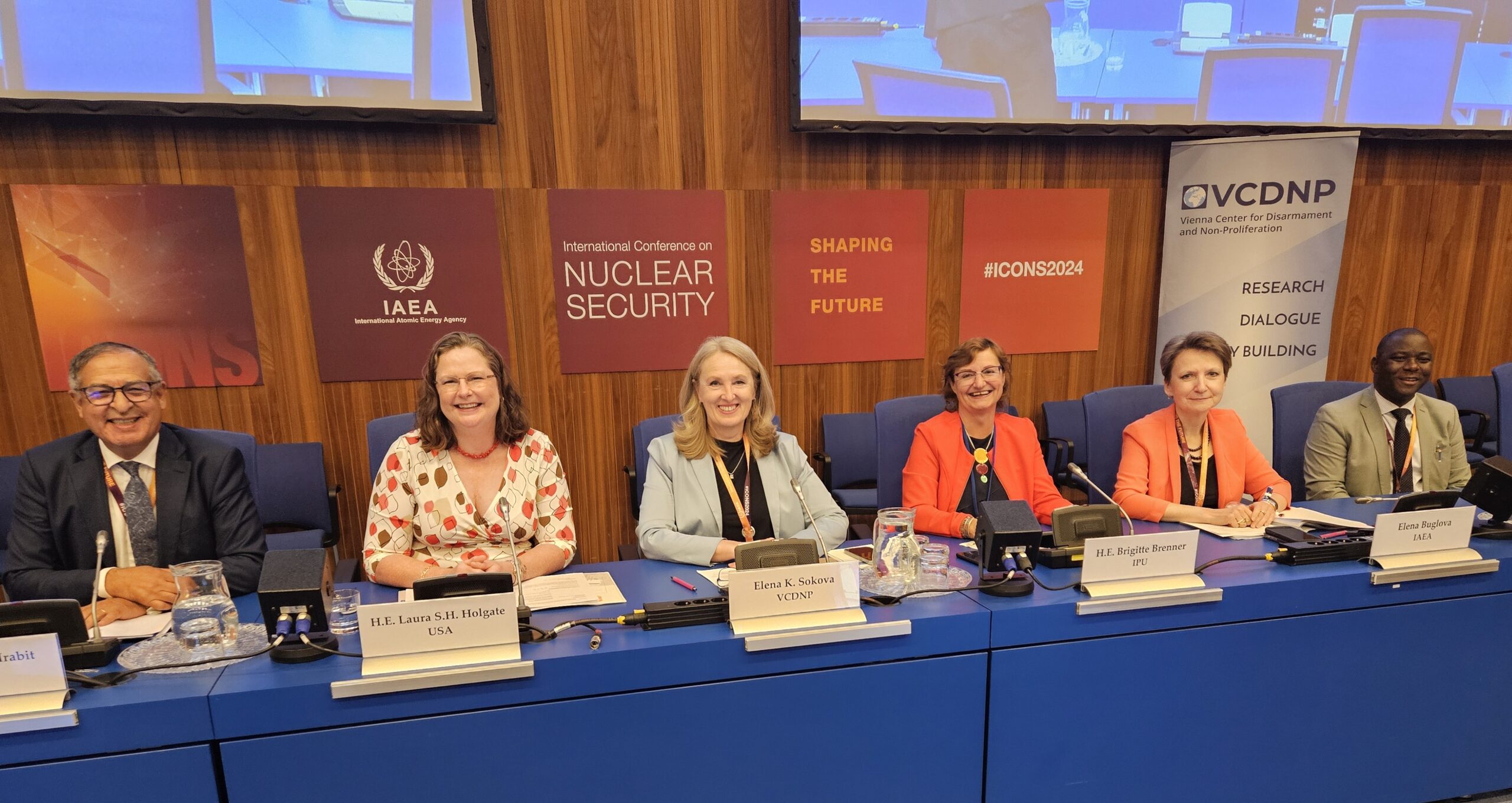
On 19 June 2019, the VCDNP hosted a seminar in cooperation with the United Nations Institute for Disarmament Research (UNIDIR) on “Deferred Verification: Verifiable Declarations of Fissile Material Stocks”.During the seminar, UNIDIR Senior Researcher Pavel Podvig presented the results of a new study, proposing a fissile material verification concept that would allow States to make legally-binding and verifiable declarations, including on material in nuclear weapons programmes. VCDNP Executive Director Elena K. Sokova moderated the event.

As explained by Dr. Podvig, deferred verification is an approach to verifying disarmament obligations that does not require access to any sensitive information about weapon-related fissile material and offers an approach to disarmament that does not rely on monitoring the nuclear weapons dismantlement process. Initially intended to be a part of the Fissile Material Cutoff Treaty, deferred verification could also support nuclear disarmament in individual cases, such as the denuclearization of the Korean Peninsula.
According to Dr. Podvig’s research there are two main challenges to verification of fissile material. The first challenge is the inaccuracy of data, in particular on past fissile material production and the size of current holdings. The data incorrectness is often caused by lost or incomplete records, irrecoverable removals, such as through tests or disposal, and difficulty measuring some forms of material. The second challenge concerns access to material that is in active use, including in deployed warheads, warheads in reserve or dismantlement queues, as well as reserve material in classified forms. Dr. Podvig proposes deferred verification as a possible solution to addressing these challenges.

Under deferred verification, Dr. Podvig suggests dividing all the fissile material that a State possesses into two segments – an open and a closed segment. An open segment would include all facilities capable of producing fissile materials, civilian and non-proscribed military activities, while all weapon-related and classified material would go into a closed segment. The State would be obligated to report the total amount of fissile material it has, including specifying the exact amount of material it has in the closed segment. It is important that after the declaration, no material is added into the closed segment. While the material in the closed segment would not be available for verification, the material in the open segment would be subject to physical inventory and verification measures. Thus, when the material from dismantled warheads is removed from weapons programmes, it would appear in the open segment where verification could take place, thus “deferring” verification.
The benefit of deferred verification is that there is no need to access nuclear warheads or any classified material. Fissile material from the closed segment would be continuously removed in a declassified form and thus accurately accounted for in the open segment. Once all the material has been removed, the closed segment would become open.
Dr. Podvig asserted that publishing declarations with the amounts of existing stockpiles of fissile material in both open and closed segments, and allowing verification measures to be implemented in the open segment, would serve as an important confidence building measure between States and would be an important step towards gradual elimination of nuclear arsenals.
The full study is available on the UNIDIR website.

